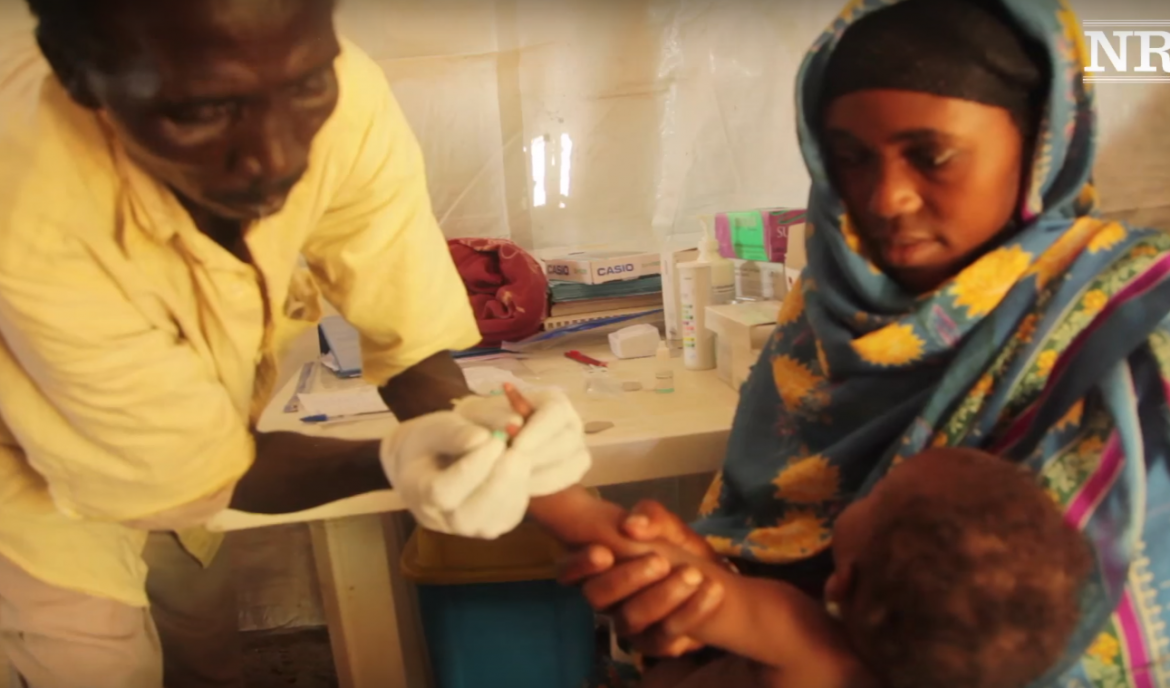“There are many people coming in everyday with many different diseases and there is no medicine, by the end of the day you would have treated 40 to 50 patients,” said Zahir Babiker, a doctor working at Yabous hospital, which is housed in a makeshift straw-thatched hut.
The small but busy hospital lies in Yabus town, Kurmuk locality, in the Southern part of the embattled Blue Nile State. In September 2011, conflict broke out between the Sudan People’s Liberation Movement- North Sudan Faction (SPLM-N), a political movement turned rebel group, and the central government. Since then, Kurmuk locality has been a stronghold for the rebels and is their de-facto capital in the state with Yabus referred to as “the liberated Yabus” by those living in rebel-controlled areas.
But their “liberation” also means isolation from the outside world as Yabus and the area around it have been on lockdown for years as the conflict continues, severely limiting access to crucial medical supplies. Only half of the small population of 18,775 has access to basic healthcare services at the hospital, according to the area’s health secretary, Abdel-Rahim. International humanitarian organizations such as GOAL pulled out in 2011 due to insecurity, GOAL’s communications officer David Williams, leaving scant organizations operating in the area. Doctors Without Borders (MSF) stated in early 2015 that it will stop applying for a work permit in Blue Nile State since the government has routinely failed to reply to such requests.
While committed, a sense of helplessness hangs over the hospital staff due to their limited training and access to medical supplies, Yabus Director Fatih Zarouq said. The town’s position near the borders of both Ethiopia and South Sudan allows occasional meagre amounts of much-needed medicine to flow in, he said, but it never meets the high demands of the war-torn community.
“They are always sick,” Afaf Faroug, a mother in Yabus who routinely visits the hospital to treat her children. “If today one of them is sick, tomorrow they tell me that three of my children are malnourished.” Farouk’s young children face a dire fate by being amongst the 162,000 children under 5 years in SPLM-N areas in Blue Nile and Southern Kordofan who have not received any form of vaccination since 2011. A plan for the vaccination of this large number of children has been developed in 2013, but has yet to be implemented due to lack of agreement between both sides on access to humanitarian aid.
Last May, Faroug’s unborn child died inside of her. “It died on Sunday and it was only removed on Tuesday, since then, my health has not returned.”





